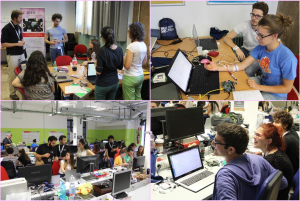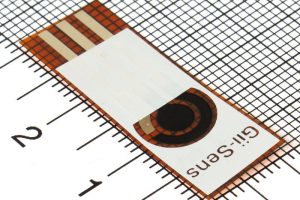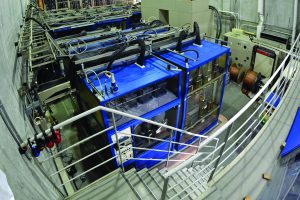The academic curriculum has evolved as technology has advanced and industry has been keen to play a part in supporting the next generation of engineers.
 One example is the Xilinx University Program (XUP).
One example is the Xilinx University Program (XUP).
It was founded over 25 years ago, says XUP manager, Cathal McCabe, to support teaching and research using FPGAs, which was a new class of electronic devices then.
In teaching and research, FPGAs are a key enabling technology across engineering and computer science fields, argues McCabe.
The XUP includes advanced hands‑on digital design, computer architecture design and exploration, smart vision and machine learning.
Researchers can innovate and create large-scale novel systems and applications quickly and cost effectively, he says.
By making licences for Xilinx software and IP available, as well as training workshops and teaching material, the company works with partners to produce low-cost XUP development kits designed for academia.
Productivity
As technology and teaching practices evolve, resources are added.
One example is PYNQ (Python productivity), an open source project from XUP and Xilinx Research Labs.
It is designed to make Zynq, Zynq MPSoC, RFSoC and Alveo data centre platforms accessible through open source technologies for a high‑level productivity environment.
For example, PYNQ can be used to test, debug and run designs.
“With deep introspection and all parts of the software stack accessible, educators can focus on the layer of interest while students can also learn about processor architecture and other hardware components that their software runs on,” says McCabe.
“PYNQ provides new and easier hands‑on ways of teaching hardware and software design.”
PYNQ also provides capabilities to build prototypes and real systems, with faster system bring-up, test, debug and integration than previously possible.
There are a growing number of open source projects available from the PYNQ community (www.pynq.io) that can be installed, reused or retargeted for different applications.
Project work for problem solving
The first PYNQ hackathon was held in Politecnico Di Milano in 2016 (pictured).
Over 100 students worked around the clock for 48 hours to come up with innovative PYNQ solutions to their problems.
The teams completed several projects from electro‑mechanical rubbish segregation, to computer vision, environmental and biomedical sensing applications.
There are also regional events including the Open Hardware Europe and Open Hardware China university design competitions.
Open Hardware EMEA is now in its sixth year. PhD level and undergraduate students compete as individuals or in small teams to develop open source hardware projects.
For PhD students and early stage researchers, XUP summer schools present a 12‑day programme of full‑time classes and hands‑on learning to explore the company’s technology.
“From its beginnings, XUP has had a major focus on supporting research in academia and fostering relationships between the internal Xilinx research programmes and the external world,” explains McCabe.
“Many university research projects have gone on to spin out their work, some have even been acquired back into Xilinx, including AutoPilot (from professor Jason Cong in UCLA) which became Vivado HLS, and PetaLinux (from professor John Williams in the University of Sydney),” he says.
Start up support
More recently XUP has been working with fresh academic start‑ups, including InAccel and its Coral FPGA manager for distributed acceleration across FPGA clusters, and Huxelerate from Politechnico Di Milano which builds customised accelerated solutions for a range of computational problems.
In addition to providing access to tools and hardware, XUP supports research by running targeted training seminars, and providing direct access to support and consultancy services.
Researchers have also been able to apply to the XUP donation program for Alveo datacentre acceleration boards to build their own local development frameworks.
Soon, says McCabe, this will also include the latest Versal ACAP hardware for advanced research programs.
Remote access to datacentre class hardware is also available through XUP.
One group to benefit from the XUP research program is in the computer engineering department at TU Delft in the Netherlands.
Professor Zaid Al‑Ars leads its research into big data architectures.
The university’s Fletcher project is a framework to support integration of Adaptive Compute accelerators with tools and frameworks built on Apache Arrow.
This is a general‑purpose framework, from which many types of big data applications can benefit.
The Fletcher team has demonstrated a variety of example applications achieving up to 50 times end‑to‑end application acceleration.
It is planning further enhancements to this framework to make it even more valuable for use in a wider range of tasks.
 Electronics Weekly Electronics Design & Components Tech News
Electronics Weekly Electronics Design & Components Tech News



